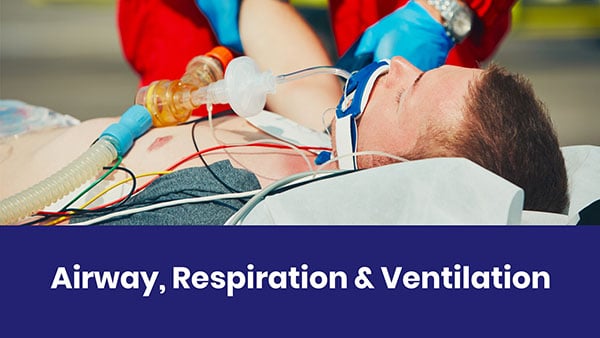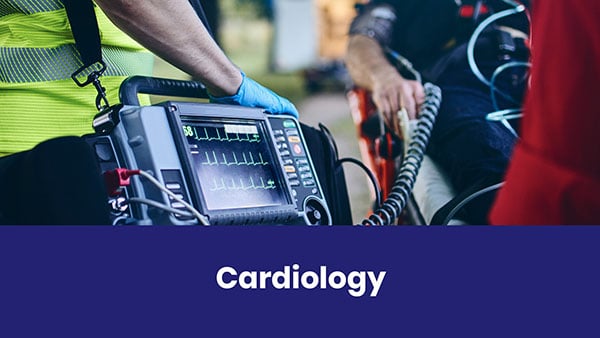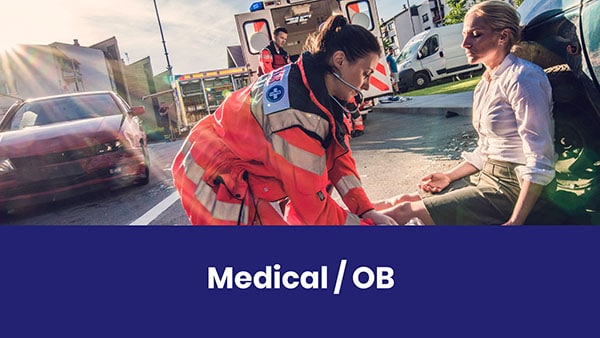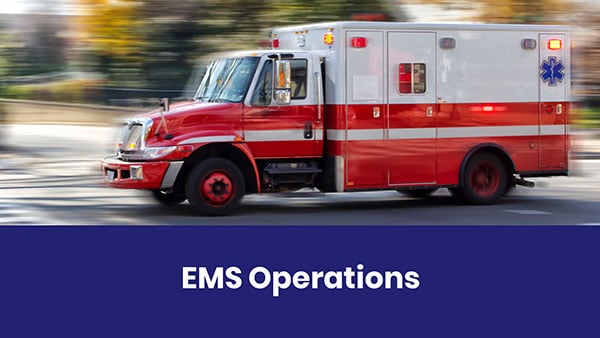5 exam subject areas
The exam includes questions covering five categories. They include Medical/Obstetrics/Gynecology, Trauma, Cardiology & Resuscitation, Airway, Respiration & Ventilation, and EMS Operations. The EMT and Paramedic exam are very similar, but the paramedic NREMT exam includes additional subject areas. The exams are different because paramedics require additional education and can provide a higher level of care than EMTs. For example, paramedics are required to learn pharmacology because they will be inserting IV lines and administering drugs. EMTs are not allowed to perform these procedures. Generally, EMT courses require a minimum of 170 hours, while paramedic courses 1,200 – 1,800 hours. The be eligible for a paramedic course you must be an EMT for at least six months.
The list below outlines the lessons included in the Guardian Test Prep program and which subject areas are designated for the paramedic exam. Select the Learn more link below each list for an overview of each lesson.
Airway, Respiration & Ventilation

Lessons
- Mechanism of Breathing
- Airway Assessment
- Respiratory Pathology
- Airway Management
- Intubation – (Paramedic)
- Capnography – (Paramedic)
Cardiology & Resuscitation

Lessons
- Cardiac Anatomy
- Cardiac Cycle/Function
- Heart Failure
- Acute Coronary Syndromes
- Vascular Disorders
- Shock and Resuscitation
- Advanced Cardiac Life Support – (Paramedic)
- Cardiac Tamponade
- Cardiac Infections
- Congenital Heart Defects
- EKG 101 – (Paramedic)
- EKG Interpretation – (Paramedic)
- Cardiac Blocks – (Paramedic)
- EKG Practice – (Paramedic)
Trauma

Lessons
- Trauma Overview
- Bleeding/Soft Tissue Trauma
- Chest Trauma
- Abdominal Trauma
- Nervous System Trauma
- Head, Face, Neck Trauma
- Orthopedic Trauma
- Burns
- Environmental Trauma
- Multi-System Trauma
Medical/Obstetrics/Gynecology

Lessons
- Medical Assessment
- Basic Life Support
- Neurology
- Eye, Ears, Nose, and Throat
- Abdominal/GI
- Infectious Disease
- Musculoskeletal
- Toxicology
- Hematology
- Immunology
- Genitourinary
- Endocrine
- Acid/Base – (Paramedic)
- Psychiatric Emergencies
- Gynecology
- OB-GYN 1
- OB-GYN 2
EMS Operations

Lessons
- EMS Operations 1
- EMS Operations 2
